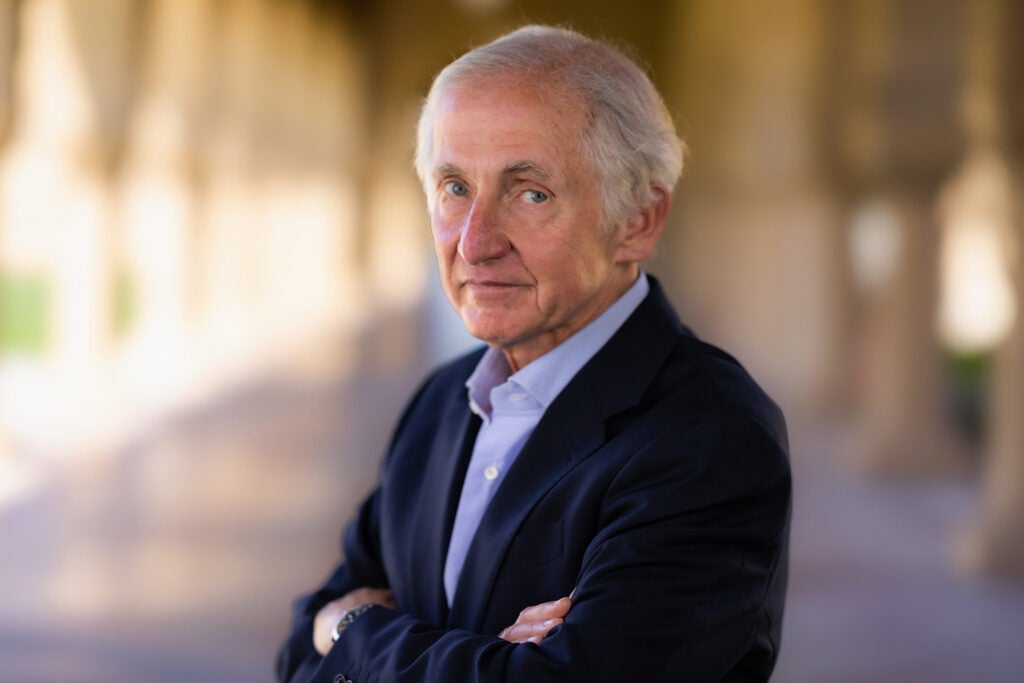Richard Saller named next director of Stanford’s Distinguished Careers Institute
Richard Saller, the Kleinheinz Family Professor of European Studies, will become the next director of Stanford’s Distinguished Careers Institute, taking over from founding director Phil Pizzo.
Richard Saller, the Kleinheinz Family Professor of European Studies, will take on the role of director of the Stanford Distinguished Careers Institute (DCI) this September as founder Phil Pizzo steps down to attend rabbinical school.
DCI provides an opportunity for accomplished individuals in midlife to renew their purpose, build community, and recalibrate their physical, emotional, and spiritual wellness. Through classroom and community experiences, the program helps DCI fellows – the latest cohort was just announced – prepare themselves for roles with social impact at local, national, and global levels.
Saller is also chair of the Classics Department, where his research focuses on Roman social and economic history, and he previously served as dean of the School of Humanities and Sciences. Prior to joining Stanford in 2007, he was dean of the social sciences division and provost at the University of Chicago.
“Richard has a fantastic track record at Stanford, an extraordinary leadership background in higher education, and the confidence of so many faculty members,” said Dan Colman, dean of Continuing Studies and Summer Session. “By virtue of being a senior university leader, Richard has a broad range of relationships that will inevitably benefit DCI and further strengthen the ways DCI serves the university.”
The DCI faculty director helps set the institute’s strategic direction, serves as its ambassador, and creates strong partnerships within the university. The faculty director also works closely with the executive director on key aspects of the institute’s program, such as research, fundraising initiatives, budget setting, programming, staffing, and recruiting fellows.
“I see a great opportunity to work with a different group and help diversify the campus population by drawing in people in midlife,” Saller said. “Many undergraduates are really hungry for advice and guidance about what to do with their lives. What the DCI fellows bring are very successful experiences outside of academia, and they can talk to undergraduates about what they want to do with their lives. In addition, it helps the DCI fellows find out what they want to do with the rest of their lives.”
Pizzo, the David and Susan Heckerman Professor, served as dean of the Stanford School of Medicine for 11 years before founding DCI in 2015. “Phil had a vision for a new kind of program that wasn’t being actively explored within universities, and he created a blueprint for a new style of education,” Colman said. “Phil had to work an extraordinary amount to bring DCI into reality, and this is now becoming a model that other universities are starting to implement.”
True to the spirit of the DCI, Pizzo had long said that, if the program were to work, he wanted to turn it over by the end of 2022 to help ensure the program’s success and further integration into the university under fresh leadership.
“Having an established leader like Richard Saller is important, because it requires the wisdom of experience, within higher education, to really think about what comes next,” Pizzo said. “I had the opportunity to work with Richard as deans of our respective schools for five years and I witnessed his intelligence, competence, ability to collaborate across disciplines, and desire to have a transformative impact on higher education. I believe that Richard Saller is the ideal person to lead DCI to its next phase of excellence at Stanford and beyond.”
Stepping away will also allow Pizzo to pursue his own career transition, which he has already decided upon. For his next act, Pizzo will enroll at the Academy for Jewish Religion, California seminary to become a rabbi.
“In a sense, my own transition now is connected to a different part of the wholeness of wellness,” he said. “It connects back to my early days studying philosophy but also speaks to the value of transition, of change and that’s where one goes through this renewal of purpose that I think is so important, which is really at the heart of DCI.”
